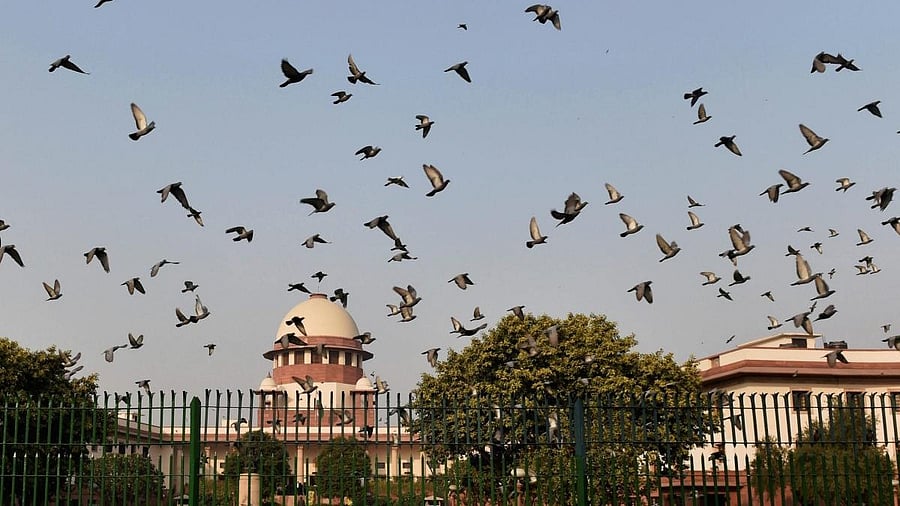
The Supreme Court of india
PTI file photo
New Delhi: The Supreme Court on Monday voiced its earnest disquiet about the proliferation of substance abuse in India, saying the arc and web of drug trade cannot be permitted to corrode the shine of the youth of India.
A bench of Justices B V Nagarathna upheld cancellation of bail to an accused, Ankush Vipan Kapoor, allegedly involved in narco terror link case investigated by the National Investigation Agency.
"The NIA, which is carrying on an investigation into any scheduled offence, can also investigate any other offence which any other accused may have committed provided such other offence is also an offence connected with the scheduled offence under investigation," the bench said.
Giving an expansive meaning of Section 8 of the NIA Act, the bench said the central government on a consideration of a report by the NIA may exercise suo motu powers and direct the agency to also investigate the other accused also provided the offences alleged against the other accused are offences, having a connection with the scheduled offence already under investigation.
In its epilogue, the bench also dealt with the ripple effect of illicit drug trade and abuse, saying its debilitating impact is an immediate and serious concern for India.
The bench implored the youth to take charge of their decisional autonomy and firmly resist peer pressure and desist from emulation of certain personalities who may be indulging in drugs.
"For youngsters just beginning to explore the world, the consumption of drugs in popular culture has propelled the cultural push towards a dangerous lifestyle, one that incorrigibly applauds drugs use as ‘cool’ and a fashionable display of camaraderie," the bench said.
The bench said it is a need of the times that the end consumers of the illicit drug trade exercise community-friendly decision making and refuse to sustain the bottom-line of drug traffickers.
As the globe grapples with the menace of escalating Substance Use Disorders and an ever accessible drug market, the consequences leave a generational imprint on public health and even national security, it pointed out.
Referring to Article 47 of the Constitution, the bench said, "The State has a responsibility to address the root causes of this predicament and develop effective intervention strategies to ensure that India’s younger population, which is particularly vulnerable to substance abuse, is protected and saved from such menace. This is particularly because substance abuse is linked to social problems and can contribute to child maltreatment, spousal violence, and even property crime in a family."
The bench referred to the Ministry of Social Justice and Empowerment’s 2019 Report on ‘Magnitude of Substance Use in India’ which revealed that nearly 2.26 crore people use opioids in India.
With regard to the role of parents, the bench said, "In our view, the most important yearning of children is love and affection and a sense of security emanating from parents and family."
The court said drug abuse should no longer be treated as a taboo that parents disengage from.
The bench also emphasised the role of schools and colleges, NGOs, NCPCR and other bodies, saying "the unfortunate reality is that victims of substance abuse are not limited to the unfortunate ones who have fallen prey to it but also include their family and peers. Our approach towards the victims of drug abuse must not be to demonize the victims but to rehabilitate them."
